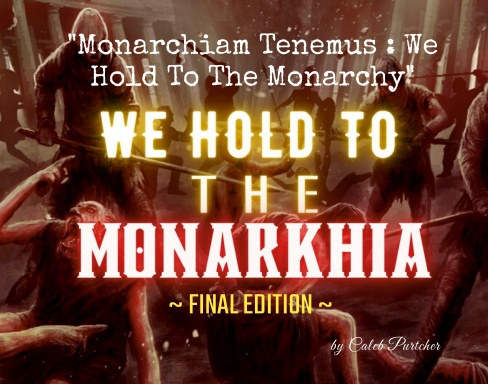Disseminating Knowledge Via Monarchiam Tenemus
Purtcher Caleb's Monarchiam Tenemus: We Hold to the Monarchy is a thorough examination of early Christian doctrine. The book explores the theory of Monarchianism, a theological system that rejected the later-expressed partition of the divine into numerous people in trinitarian theology and instead maintained the ultimate oneness of God. The book illuminates a time of intense theological dispute and spiritual development within early Christianity by concentrating on the pre-Nicene period, which precedes the Council of Nicaea in 325 AD.
The belief in a single, all-powerful God is encapsulated in Monarchianism, which is derived from the phrase "Monarchiam," which means the rule of one. For many early Christians who opposed the impact of Greek philosophy and the concepts spread by Gnostic movements, this belief was essential. The belief that God is one, indivisible, and the one ruler and creator of everything was a solid belief of monarchs. They insisted that Jesus and the Father are one and the same, rejecting the idea of several divine individuals. They were frequently called "modalists" by critics because they emphasized that God did not exist as separate persons but rather manifested in various modes or characteristics.
In his book, Caleb examines how Monarchianism became the dominant viewpoint in early Christianity and defended its theological position against competing interpretations. In the face of other theological systems' growing influence, the book emphasizes the intellectual and spiritual struggles Monarchians had in defending their conviction in God's absolute oneness.
Monarchiam Tenemus devotes a large amount of its attention to the theological context of the Council of Nicaea. This period was marked by fierce debates over the nature of God and the identity of Jesus Christ. Caleb looks at how the theology of the Trinity, which later portrayed God as three coequal and coeternal people, was received by early Christians. Caleb shows that many early Christians did not accept the Trinitarian theory as it is currently understood by carefully examining historical records and quotations from reputable academics and theologians.
The book also discusses the Monarchians' resistance to Greek philosophy, which frequently attempted to use abstract metaphysical ideas to explain heavenly mysteries. The Monarchians offered an alternative to the philosophical ideas that became popular in the early church by staying grounded in biblical teachings. New perspectives on how these arguments influenced the evolution of Christian doctrine and the final establishment of orthodoxy at Nicaea are offered by Caleb's research.
Purtcher Caleb’s personal journey adds a compelling dimension to his theological work. Born on May 14, 1989, in Geneva, Switzerland, Caleb was raised in a Christian home and grew up attending an evangelical Pentecostal church. His early years were shaped by a blend of spiritual teachings and life experiences, including mandatory military service in the Swiss Army and business school education.
At the age of 19, Caleb’s life took a dramatic turn when he became a young father. This milestone, coupled with a near-death experience involving hallucinogenic drugs in Amsterdam, led him to reevaluate his beliefs. Seeking answers and deliverance, he turned to Jesus Christ after encountering Christian testimonies online. A transformative conversion experience followed, rooted in his reading of Romans 10:8-13. Caleb’s prayer for clarity about the identity of Jesus Christ led to a renewed faith and the conviction that Jesus is the one true God.
Today, Caleb is a devoted father of five and a passionate advocate for his faith. Since 2012, he has shared his beliefs through a YouTube channel, where he continues to preach about repentance, faith, and the love of Jesus Christ.
Not merely a historical study, Monarchiam Tenemus is an exhortation to reconsider and rediscover core Christian doctrines. The book encourages readers to reflect thoroughly on their faith and theological understanding by exploring the difficulties early Christians faced in defending the idea of God's oneness. Anyone interested in early church history, theological discussions, or the continued applicability of Monarchianism will find it to be a useful resource.
Monarchiam Tenemus: We Hold to the Monarchy is an insightful and thought-provoking read for anybody interested in learning about the origins of Christian philosophy and the difficulties early Christians encountered.
